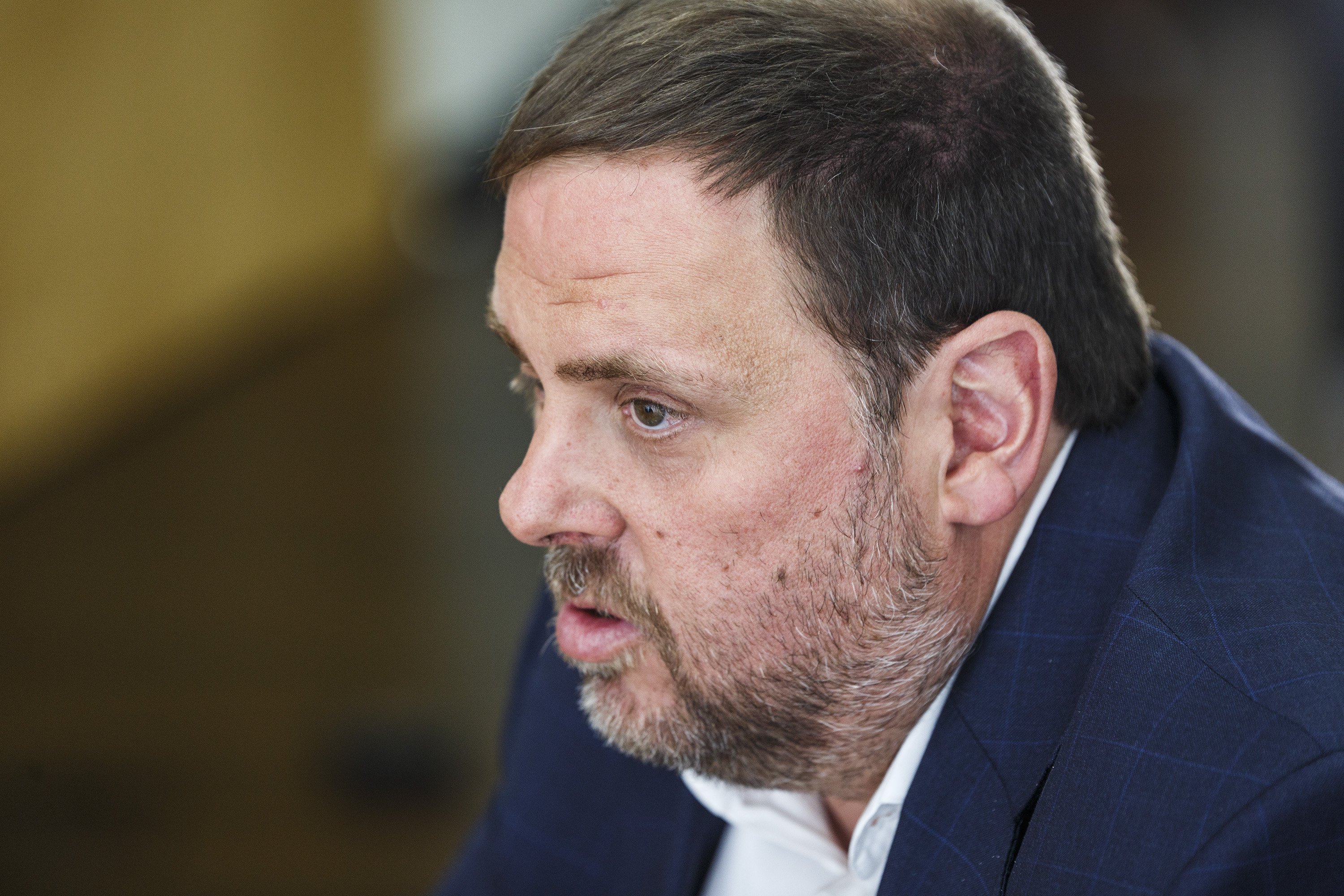Oriol Junqueras: "The right to self-determination forms part of Spanish legislation". With those words, the Catalan vice-president and leader of ERC defied judge Pablo Llarena in his hearing in the Supreme Court after his pretrial proceedings earlier this year.
El Nacional has had access to the audio from the case investigating last year's Catalan referendum in its entirety. The comments in which he strongly defends Catalonia's right to self-determination come from 16th April 2018.
"A referendum isn't a crime," he says firmly. He also tells the judge that "citizen participation is protected by basic freedoms".
In the same hearing, Junqueras says that 27th October saw a declaration of independence, that he's never questioned ERC's position (his party) on Catalan independence and that the Constitutional Court sentence on the new Catalan Statute of Autonomy in 2010 marked a turning point between the Spanish state and Catalonia. That verdict, according to the vice-president, ended up marking the "road map" to JxCat achieving its democratic pro-independence mandate in the Catalan Parliament election in autumn 2015.
He says that he had always looked for negotiation and agreements, but the declaration of independence came in the face of a complete lack of response to this attempt.
On the topic of the referendum itself, Junqueras says that not a single euro of public money was spent on it and that he was unaware of the Enfocats document. He also reported that he had not been able vote at his normal school. Junqueras' polling station in Sant Vicenç dels Horts was closed off by Mossos d'Esquadra (Catalan police), as required by Mercedes Armas, judge on the High Court of Justice of Catalonia. Junqueras highlights that they did so "preserving social harmony".
At the end of his testimony, in the section we publish above, the vice-president claims his basic rights as the subject of an investigation. He says that the Supreme Court isn't the competent court to try or investigate him, that there are parallel proceedings, that his right to defence is being violated, as are his right to political representation and his fundamental liberties.
"Never, never, never, not ever"
As in all Junqueras' statements before the Supreme Court, he always rejects violence as a path to independence. It's this idea of violence that's used to argue the charge of rebellion, the most serious facing the prisoners.
"We're convinced that that which legitimises and justifies our behaviour is that which preserves values like social harmony, the common good, personal dignity... All that can be done civilly and peacefully. All statements have always followed that line," he says.

